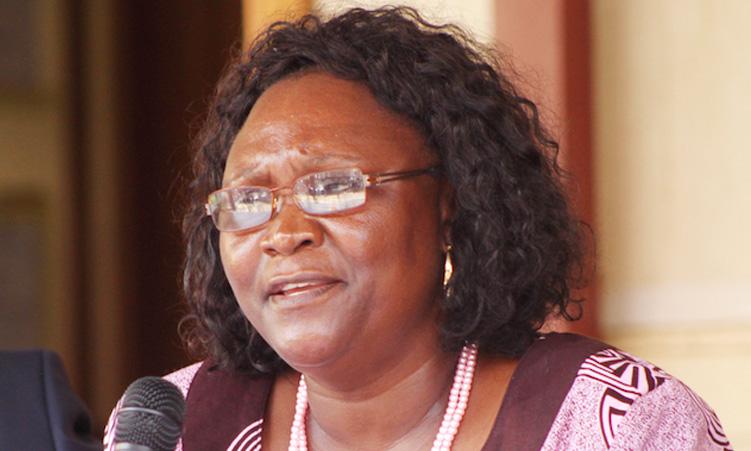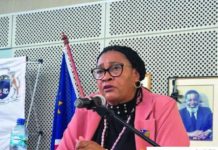Africa-Press – Namibia. ACC boss ‘too busy’ to entertain topic
Namibia’s prosecutor general, Martha Imalwa (63), has no clear retirement plans.
She says she may retire in a year’s time when her employment contract expires.
“You want me to predict what will happen then? I can’t do that as I have no control over my life – God does – therefore I can’t entertain such discussion. It’s premature in my view,” Imalwa says.
In the same vein Anti-Corruption Commission (ACC) director Paulus Noa (60) says he is too busy to discuss retirement.
Imalwa, who will turn 64 in December, and Noa are both nearing the end of their terms next year.
Neither have indicated any intention of stepping down.
Noa yesterday directed questions to the appointing authority.
“I am busy and cannot share information on questions. I advise you to approach the appointing authority,” he said.
Meanwhile, the Office of the Prime Minister (OPM) has indicated that legal frameworks guide decisions on potential contract renewals.
“These appointments follow due process as laid out in the respective legal frameworks,” I-Ben Nashandi, the executive director in the OPM, said.
Imalwa has been serving as the country’s prosecutor general since 2004, while Noa has been ACC head since 2006.
‘CHANGE’
Landless People’s Movement (LPM) Youth Command leader Duminga Ndala says it is high time for a “new breed” of leaders.
“Both Noa and Imalwa have faced accusations of bias in their handling of high-profile political cases. During their tenure, we have not witnessed significant arrests of individuals alleged to be corrupt or involved in corrupt activities,” she says.
Ndala says this raises concerns about their commitment to tackling corruption effectively.
“A change in leadership could provide an opportunity for renewed focus and integrity, restoring trust in these critical institutions.
“It is essential that future leaders prioritise transparency, accountability, and impartiality to demonstrate a genuine commitment to justice,” she says.
‘DEBATE NEEDED’
Political analyst Henning Melber says once a new president and government is elected, an open and transparent debate over the performances of Imalwa and Noa should be held.
“Only after such assessment in the best public interest should the appointment be decided, assuming the institutions remain unchanged,” he says.
He says Noa or Imalwa should have no say in such decision-making processes.
“Following such an open approach without any predetermination is also a matter to ensure the office-holders have the greatest possible acceptability for the execution of their mandate,” Melber says.
He says legal provisions must be respected, “but over and above the legal framework, the credibility of both institutions and their executives requires improvement”.
For More News And Analysis About Namibia Follow Africa-Press






